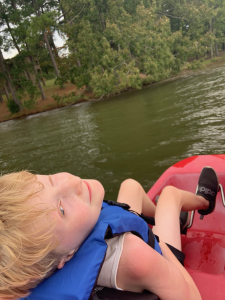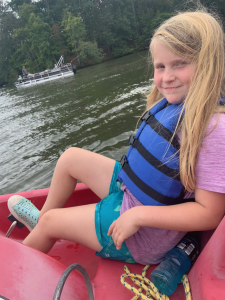Who knows, in today’s challenging times, where heroes may appear? Where might we encounter those special folks who fuel inspiration and spark hope with quiet achievement of the impossible?
For me, they tend to emerge in the most unlikely scenarios, and I witnessed one the other night. She appeared in the form of a middle-school orchestra teacher, a job that surely ought to come with a cape as standard equipment. Before I departed for the evening, I etched her name permanently on my personal hero roster.
It all began as I trailed into the school gym with my daughter and son-in-law, drifting in with a cheerful, bustling crowd of other parents and grandparents for the semi-annual school orchestra concert, a rite of the holiday season. As we found our seats on the old-fashioned wooden risers, I began to observe our leader for the evening: A youthful paragon of patience and positive energy in a neat black dress and comfortable shoes.
For the purposes of our story, we’ll call her Miss Mandy. As the large gym wall clock ticked toward launch time, she tended carefully to her proteges as they took their seats and prepared to begin the evening’s entertainment. Quick-stepping around the yakking adolescents, she delivered a smiling nod to a question here, or a swift and practiced adjustment to a string bow there.
Even the most indulgent and enthusiastic attendee (a grandmother like me, for example), prudently approaches these events with a certain firm management of expectations. It’s the effort that counts, we babble, as other platitudes of that vintage come to mind. As Miss Mandy motored patiently through the final preparations, the kids were a predictable, harmless portrait of pre-teen disorderly conduct. They were nudging and rolling eyes at each other, tugging at their unfamiliar, formal black pants and skirts, dropping things and knocking over chairs when retrieving the dropped object from below.
My 11-year-old, sixth-grade granddaughter, stationed on the back row with her upright bass, appeared to be enjoying a huge joke with the next player over, a giggling soldier for the cause wearing large glasses and a red bow tie. Their focus was anywhere but on the music perched on the stands in front of them. Eyeballing this beehive of boisterous holiday inattention, one had to wonder—what could possibly go wrong?
Alas, with patience and hope we might learn from the example of the Wise Men, one can observe a miracle of the season as it unfolds. Miss Mandy stepped up front to the conductor’s stand, radiating encouragement as she lifted her outstretched arms, and a stunning transformation was instantaneous. Silence fell, bows were carefully hoisted, and 93 pairs of adolescent eyes trained on her, awaiting their cue.
I admit to holding my breath for the first few measures, with that expectation management thing hovering. Memory drifted to an observation from the immortal British humorist P. G. Wodehouse, who once described the opening violin solo at a village concert like this: “It was loud in spots, and less loud in other spots, and had that quality I have noticed in all violin solos, in seeming to last longer than it actually did.”
Imagine the gratifying surprise when the opposite proved to be the case. A soft but appreciative exhale blew out quickly as the kids bowed and plucked their way through a perfectly respectable, if slightly down-tempo, rendering of Winter Wonderland. Miss Mandy could not contain her own fervor, swaying and tapping her feet as she transmitted the conductor’s magical cues and guided 93 (absorb that again—93!) kids to play multi-stringed instruments, in harmony and on beat, through the beloved tune.
Next up, the smaller group of younger, beginner performers added their own brief offering, delivered with more determined energy than competence, but still a charming effort, overall. This was followed by a collaborative effort of the younger and older musicians on a brightly paced medley of ubiquitous holiday classics.
And suddenly that, against all odds, was that. Hardly 20 minutes into the action, we started in surprise when Miss Mandy announced the arrival of the evening’s conclusion.
“What?” My daughter looked around, graciously subtle in her happy surprise. “We’re done?” We joined the doting crowd in enthusiastic applause and cheers, which may have achieved a higher multiple due to the merciful brevity of the proceedings.
Miss Mandy cemented her hero nomination when I approached to thank her. “Great job,” I began, but she wouldn’t have it be about her. “Weren’t they wonderful?” she responded, with such heartfelt warmth that I couldn’t bear to refract the praise back her direction. Dying to probe deeper to unearth the hidden depths of such brilliance, I could see it wasn’t the time. I left her in peace with simple agreement: “They were,” I agreed, “they really were.”
“That has to be some kind of a miracle,” I said to my daughter and son-in-law as we moved toward the exit. “The teacher is amazing. Can you imagine what it takes to get 93 middle-school kids to do the same thing, at the same time, with some level of competence?”
“I can’t, at all,” she agreed, shaking her head. “Because I can barely get two of them to do anything, ever.”
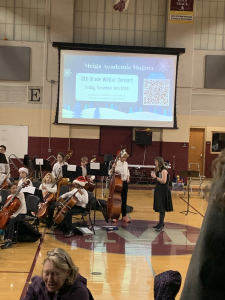 Looking around at the horde of parents and grandparents emerging into the cool evening, I speculated that most would say the same. That’s the stuff that makes heroes—those brave souls who never give up on reaching heights we mortals can hardly envision. God bless them, every one.
Looking around at the horde of parents and grandparents emerging into the cool evening, I speculated that most would say the same. That’s the stuff that makes heroes—those brave souls who never give up on reaching heights we mortals can hardly envision. God bless them, every one.

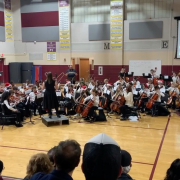
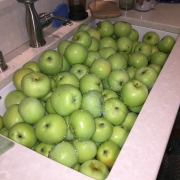
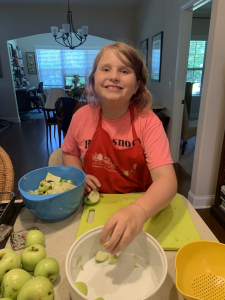
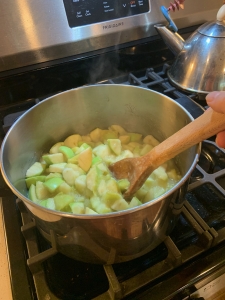 .
.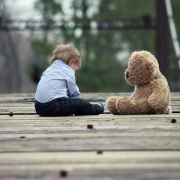
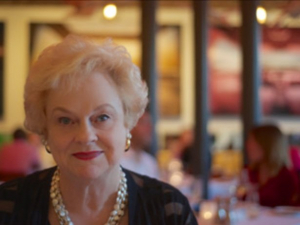
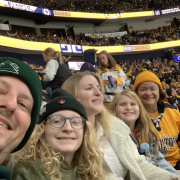
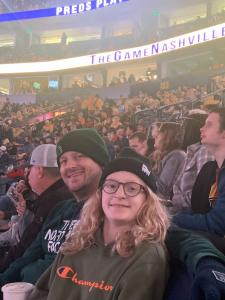
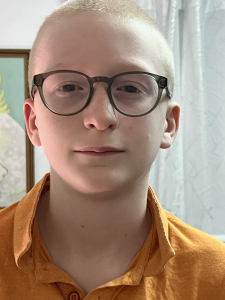

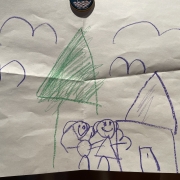
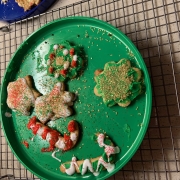
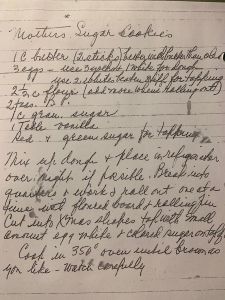
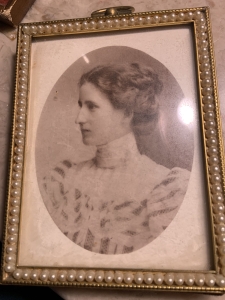
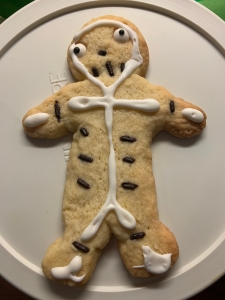
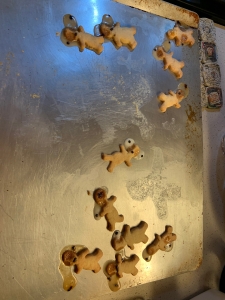
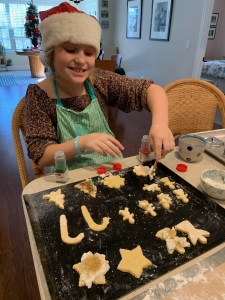
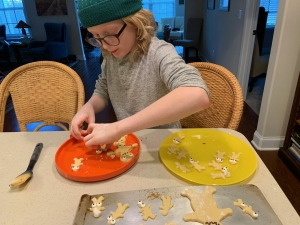

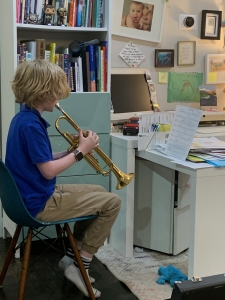 Have you two ever heard this before? “I’ve heard this song, yes,” affirmed 9-year-old Sis, and her brother added, “Me, too.” What do you think it’s about? “It’s about civil rights and racism,” Buddy answered. I paused a moment, surprised again but grateful, as the knowledge of a rising sixth grader sank in.
Have you two ever heard this before? “I’ve heard this song, yes,” affirmed 9-year-old Sis, and her brother added, “Me, too.” What do you think it’s about? “It’s about civil rights and racism,” Buddy answered. I paused a moment, surprised again but grateful, as the knowledge of a rising sixth grader sank in.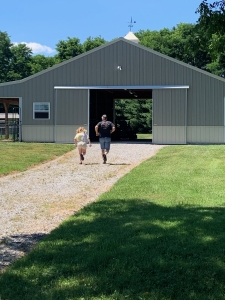 I stop the car and the kids eagerly unbuckle. Wait until she hears this story, I think, waving back. She won’t believe it.
I stop the car and the kids eagerly unbuckle. Wait until she hears this story, I think, waving back. She won’t believe it.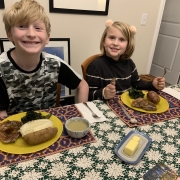

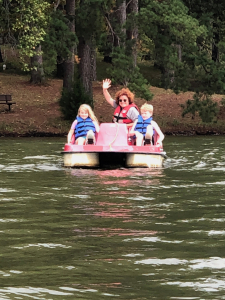
 Returning to my room to fetch Load 2, I could have turned either way, one option toward the gravel driveway and main entrance of the lovely old wooden lodge, the other toward the outside steps, closer to the little lake whose grassy shore was just a few dozen steps downhill from the parking lot. Something told me to turn toward another view of the water, utterly quiet at this early hour, its flat surface undisturbed, even by fish or those who pursue them. It was a chance to drink in one more look, just for a moment.
Returning to my room to fetch Load 2, I could have turned either way, one option toward the gravel driveway and main entrance of the lovely old wooden lodge, the other toward the outside steps, closer to the little lake whose grassy shore was just a few dozen steps downhill from the parking lot. Something told me to turn toward another view of the water, utterly quiet at this early hour, its flat surface undisturbed, even by fish or those who pursue them. It was a chance to drink in one more look, just for a moment.